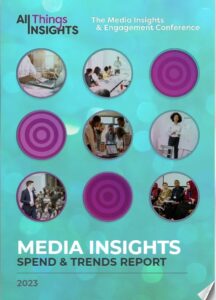I certainly empathize with the question, particularly in a time of uncertain economic conditions (which have become the norm during my professional career). Given that sustainable solutions typically cost more, brands and retailers are eager to recoup their investments while gaining a little margin along the way. Although insight professionals have a number of quantitative tools to determine willingness to pay, results can range from mixed to confusing and still be difficult to implement into a broader branding and product strategy.
A Conversation About Value
When faced with this important question, I prefer to reframe the question into a conversation about value. Will consumers value a brand’s sustainable products? The answer is typically yes, assuming a brand is adept at positioning their sustainable solutions in a way that consumers understand the value they will receive (to learn more about messaging, see Myth #4: Messaging Sustainability to Consumers is Too Complex).
In fact, numerous consumer research studies conducted by Eastman across the U.S. and Europe demonstrate consumer willingness to pay between 5-25% more for various types of products made with recycled content assuming these products do not compromise on performance and quality and are messaged clearly to consumers.


However, understanding that consumers see value in sustainable solutions is just one part of the equation. Beyond messaging and positioning, brands and retailers also must fully understand the market strategy they are following. Are you using sustainability to build a new customer base, get more shelf space, protect existing business from emerging competitors, or completely disrupting a category? Each of these market strategies would require their own messaging, positioning, and pricing strategy. Eastman has customers who have found success using sustainability as a category disruptor or a way to build a relationship with a new consumer cohort, while also successfully charging price premiums. There are also a number of industry examples of companies who were not able to pass along higher prices for sustainable products due to lack of a clear market strategy or value proposition to the consumer.
Insight professionals should leverage their vast repositories of data to help their internal stakeholders really think through their sustainable market strategies and product value propositions. If you don’t have a seat at the table already, try building your internal network with key advocates or hosting “lunch and learns” around how sustainability could enhance the value of your company’s brand and product portfolio. If you do have a seat at the table, don’t shy away from challenging preconceived notions or pushing for more data-backed decision making.
The notion that consumers won’t pay more for sustainability is faulty, even in difficult economic times. Value can always be extracted from consumers if they feel they will get a good return on their investment.
Click here for Justin Coates’ series for All Things Insights, “Exploring 10 Myths About Global Consumers & Sustainability.”
Contributor
-

Justin Coates is Eastman’s Head of Global Market Research & Consumer Insights, responsible for leading business intelligence, customer experience, user experience, foresighting, and consumer insights across Eastman. Before joining Eastman in 2017, Coates spent a decade at Cotton Incorporated managing their global consumer insights research and positioning himself as a thought leader on consumer trends with the world’s largest brands and retailers. He holds a Masters of Economics degree from North Carolina State University and a Bachelors of Arts degree in Political Science from High Point University. Coates lives with his wife and son in Kingsport, Tennessee.
View all posts
































































































